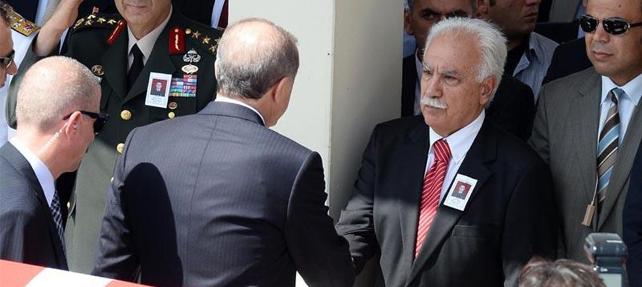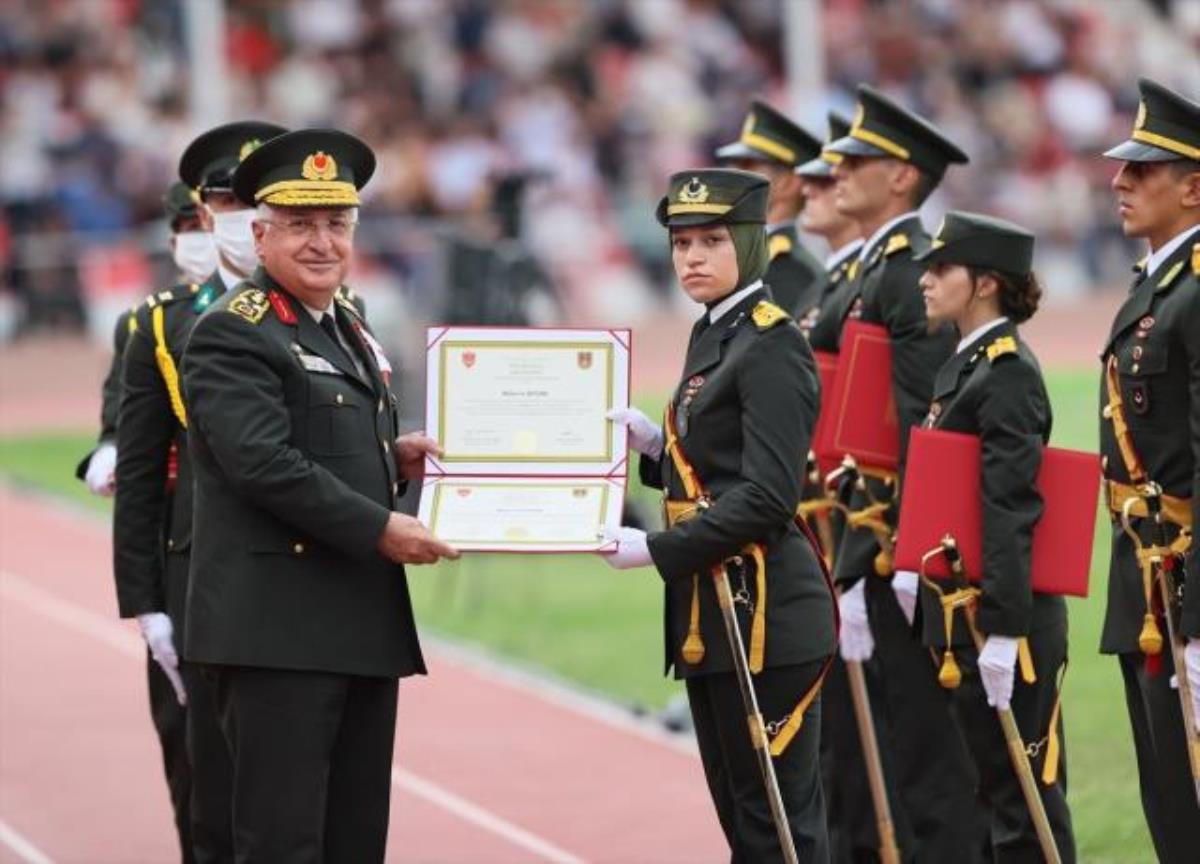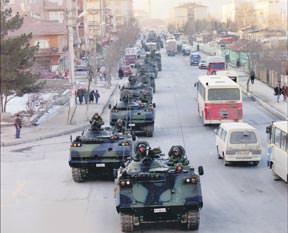The year 2021 has witnessed a remarkable increase in the tension of the relations between the Erdogan regime and the Ultra-nationalist/Eurasianist factions, who have become one of the main players of this regime recently. To better understand these tensions, I would first like to address the last five years’ background.
An Overview
Rocketing especially after the failed coup attempt of July 15, 2016, President Erdogan has re-shaped the democratic constitutional order and established an executive presidential system featured with weak or almost zero accountability. While this new system was undoubtedly a clear deviation from the former secular and democratic acquis of the country in many ways, Erdogan faced little resistance in imposing it first de facto and eventually de jure against the powerful actors of the establishment.
The state of emergency, enacted on July 20, 2016, led to a countercoup by the Erdogan regime and enabled a radical restructuring of the military itself. Efforts to clean up state structures intensified until it ended on July 18, 2018. The brand-new balance between civilians and the military was featured by a simultaneous increase of the President’s power over the military and a reduced likelihood of parliamentary scrutiny.
At the heart of this balance, the Erdoğan government pursued to adapt the structure of the military to its own political orientations. The declining autonomy of the military and its gradual transformation into a political apparatus implementing the Erdoğan regime’s agenda were characteristics of the change. Erdoğan marched with further measures to subjugate the military to reflect the ideological vision of his government. Besides the structural and ideological transformation of the military, Erdoğan established control over the armed forces by the expulsion of non-loyal officers and the recruitment of loyalist cadres.
From July 2016 onwards, about 50% of the generals and admirals, 90% of the general staff officers, and around 30% of the officers were expelled from the Turkish Armed Forces (TAF). Further, replacing these emptied positions, more than 70,000 officers, non-commissioned officers, and sergeants have been recruited with political loyalty to the government being one of the decisive criteria. Since he didn’t trust the regular bureaucratic channels, Erdogan opted to utilize several Islamist networks and structures coordinated by SADAT through this recruitment process. In this way, the government dealt a severe blow to the historical tradition of a “closed” military detached from party politics.
At a later stage, with the formal adoption of the presidential system, more changes were made, further increasing control by President Erdoğan. The National Intelligence Organisation (MİT), the Under-secretariat of Defence Industries (SSM), the General Staff and the Commanders of the Service Commands, and the National Security Council were transferred to the office of the President. Significant changes continued in the structure of the Supreme Military Council through the addition of civilians (Ministers of Justice, Interior, Foreign Affairs, Finance, and Education) and the reduction in military members.
But, how and why could not the long-standing “establishment”, existing ruling elites, opposition parties, and perhaps above all, the country’s powerful military show any sign of resistance against this political avalanche?
It can be asserted that one of the key elements of Erdogan’s achievement in shattering any sources of potential resistance that may arise from powerful political actors lies in his success in co-opting Eurasianist/Ultra-nationalist networks within the military (and its retirees) in exchange for their loyalty to his rule.
This happened after 2013 when Erdoğan felt left alone and vulnerable under the threat of an upcoming prosecution against himself and his family. He quickly realized that the only way to survive was to receive the backing of Eurasianists/Ultra-nationalists in Turkey. These groups happened to be extremely powerful inside the Turkish military and judiciary. Erdogan gave them some elbow room. While the two sides had different outlooks regarding national identity, social cohesion, and political unity, further events forced them to be “antagonist brothers”.
Following Erdogan’s declaration of Ergenekon and Sledgehammer cases as hoaxes, an Erdogan-controlled judiciary started to overturn the verdicts of the coup trials and endorsed the release of all the civil and military defendants in 2014. From then on, Eurasianists/Ultra-nationalists started aligning with Erdoğan. Erdogan felt the need for a stronger rapprochement with the former high command, officers, and generals who were tried, convicted, and then released for planning coups against Erdogan. This attempt at a new detente with elements of the ancient regime was facilitated by the fact that these mostly retired generals were ready to renege on their lifelong commitment to keeping an Islam-friendly party out of power. These anti-Erdogan generals’ self-serving logic for seeking a truce with their historical adversary found fertile ground among Eurasianists/Ultra-nationalists.
In tailoring the purge lists, the regime needed a system of intelligence and information support simply about “who is who,” to decide who to dismiss and who to keep. Dogu Perincek’s Vatan Partisi and its intelligence network provided the required feedback in this regard. A closer look at the names of the party members clearly shows the intelligence-intensive nature of the party. Former intelligence heads of the Turkish General Staff HQs, of the navy, and of the gendarmerie (general İsmail Hakkı Pekin, admiral Soner Polat, and general Levent Ersöz, respectively) were the members of the party. The intelligence capacity of the Perincek’s party provided indispensable data for Erdogan to be able to purge the dissenting cadres from the state apparatus before restructuring it. Two months after the coup, Perincek safely stated that “his colleagues in the party” checked and compared the new appointment lists of the military’s high posts with the list that they have, and that they are glad to find out that “they match around 90% to100%.”100
To summarize, the key elements of Erdogan’s achievement in consolidating his rule lies in his success in (1) mobilizing several Islamist networks and structures coordinated by SADAT and (2) his pact with Ultra-nationalist/Eurasianist former military officials.
However, things have started to change slightly and 2021 witnessed some glitches between Erdogan and his antagonist brothers, Eurasianists/Ultra-nationalists.

The Glitches Between Erdogan and Eurasianists/Ultra-nationalists: Public Disclosure of the SADAT’s Activities by Eurasianist Oda TV
In 2021, several allegations have surfaced over SADAT in some Eurasianist/Ultra-nationalist media regarding its activities in the country and abroad.
SADAT advertises itself as a military contractor, offering services such as consulting, conventional, unconventional, and special forces training, as well as ordinance and maintenance expertise. Whereas most private military companies are thought to be driven by profit motives, SADAT is an outlier due to Tanrıverdi’s overtly political and religious ambitions.
Tanrıverdi, a former general who had been forced into retirement back in 1996 due to his Islamist affiliations, has become known in recent years as the director of SADAT. Tanrıverdi served as a brigade commander in Istanbul during Erdogan’s mayorship in 1994, and the two men have been friends since then. Following the failed coup attempt in 2016, Erdogan named Tanrıverdi his chief military counselor, thereby giving him a private and public role.
There is evidence that SADAT serves as a conduit between Ankara and proxy fighters in Syria, Libya, and Azerbaijan, boosting Turkish military and security activities while providing anonymity. For instance, in summer 2020, the chief inspector general of the US Department of Defense issued a quarterly report to Congress on counter-terrorism efforts in the US Africa Command area. The report included a review of Libya’s deteriorating security situation in the aftermath of Turkey’s military involvement to shore up the ailing Government of National Accord (GNA). “Several dozen military trainers from a Turkish private military organization, [SADAT], were dispatched to Tripoli to train both GNA-aligned militias and Syrian rebels,” it said, citing Turkish-supported mercenaries as one of the primary destabilizers. “The estimated 5,000 pro-GNA Syrian fighters in Libya are under SADAT’s direction and are paid by him.”
SADAT’s activities are not limited to abroad. It operates in the country as well. “Almost all of our suggestions regarding the restructuring of the Armed Forces in our proposal to the Constitutional Commission came into force after July 15,” said Tanrıverdi in June 2021. “We asserted that all of the military academies should be connected to Ministry of National Defence, they were. We asserted that the Gendarmerie General Command should be separated from the General Staff and connected to the Ministry of Interior, it was. We asserted that the structure of the Supreme Military Council should be changed. Now, the civilians dominate the Council. We asserted that the military judiciary should be abolished, and it was. Almost all of our recommendations came true after 15 July” he continued.
In October 2021, Oda TV, a Eurasianist internet-based newsletter reported that one of the founders of SADAT, Gurcan Onat, a former military officer, said that the shady group conducted nomination interviews for military academies for three years after the 2016 failed coup attempt. While Tanrıverdi refrained from confirming SADAT’s involvement in the interview process, he said that his group acts within the knowledge of the Ministry of National Defense. Many read Oda TV’s report as a kind of “blackmail” against the government and as a reflection of the glitch between Erdogan and Eurasianist wings.

Declaration of Retired Admirals
On April 2, 2021, 104 retired admirals signed and disseminated an open letter through nationalist news sites. The petition slammed pro-government commentators who requested the Montreux Convention be repealed. The declaration also mentioned leaked photos showing an active-duty rear admiral in Islamic clothes in a home together with the members of a pro-government religious cult.
The Montreux Convention, which governs the movement of merchant ships and warships through the Bosporus and Dardanelles Straits, is hailed as Mustafa Kemal Atatürk’s crowning achievement. The signee admirals said that if the government abrogated the pact, Turkey would jeopardize both its national security and its debt to Atatürk. Since then, a plethora of government officials has denounced the letter as an attempt to destabilize the Erdogan administration.
As a matter of fact, Turks were familiar with the official e-memorandums of the 2000s as well as the menacing declarations by the active-duty officers taking part in the junta groups throughout the 60s and 70s, but it was the first time that retired military officers raised their voices in this way. At the same time, this event hinted at the ideological divide between the “new TAF” and the retirees of the military. General Commander of the Gendarmerie, General Arif Çetin, for instance, immediately issued a counter-declaration, announcing that he took a position next to President Erdogan against his former comrades.
“A group of retired soldiers is putting themselves into a laughable and miserable position with their statement that echoes military coup times,” the presidential spokesperson İbrahim Kalın said on Twitter. Erdogan accused the admirals of “suggesting a coup” and claimed that the country’s main opposition parties are in cahoots with the signatories. Opponents of the AKP hypothesized that other reasons, such as concerns about freedom of speech or concerns about the growing influence of conservative Muslims in the military’s senior ranks, may have prompted the publication of the letter. At the very least, the admirals were treated the same as other groups that have coordinated comparable public petitions, such as academics and union leaders in the country.
In December 2021, the Ankara Chief Public Prosecutor’s Office completed the investigation into the declaration of retired admirals. 103 suspects have been indicted on a charge of “making an agreement to commit a crime against the security of the state and constitutional order. They face 3 to 12 years in prison on the offense charged.
Former Top Generals’ Imprisonment over 1997 ‘postmodern coup’
In August 2021, fourteen retired generals were handed life sentences for their involvement in the forced resignation of the democratically elected government in early 1997, often called a “postmodern coup.” All the fourteen former generals, aging from 73 to 89, including former 1st Army Commander Gen. Çetin Doğan and former deputy Chief of General Staff Gen. Çevik Bir, were jailed.

On February 28, 1997, the military leadership issued a memorandum against the government of Prime Minister Necmettin Erbakan. Erbakan was handed a list of 18 demands by the military, almost all of which pertained directly to issues involving religion. Under intense pressure, Erbakan signed his acceptance of 18 directives and resigned on June 30, 1997, a year after having taken the office. On January 16, 1998, Erbakan’s Welfare Party (“Refah Partisi”) was closed by the Constitutional Court on the grounds of violating the principle of secularism.
In a landmark decision of 2018, a Turkish court sentenced 21 people to aggravated life imprisonment over the 1997 events. The defendants faced charges of forcefully disrupting the operations of the government’s executive branch. The prison sentences were approved by Turkey’s Court of Cassation, which is believed to be influenced by Erdogan, in July 2021. The prosecutor’s office rejected a petition by the defendants’ attorneys to delay their sentencing.
Supreme Military Council Decisions
The Supreme Military Council meeting of August 2021 was full of successful moves that Hulusi Akar, the Minister of National Defense, scrutinized with a “political mind “.
The foremost of his achievements was to retire General Umit Dundar, Commander of the Land Forces and to design the cadre of full generals in a way that would affect a few years ahead. Umit Dundar was known for his close ties to MHP leader Devlet Bahceli, and he received a good reputation among Eurasianist circles. He was expected to hold the office of Chief of General Staff, replacing General Yasar Guler.
With the retirement of General Dundar and the replacement of General Musa Avsever, who was the Commander of 1st Army in Istanbul, it also became evident that Avsever would be the next year’s chief of general staff. With the same move, Akar hit a second bird: The rise of two significant figures who could pose a potential threat to Akar’s career, General Yavuz Turkgenci, Commander of the 3rd Army, and General Metin Gurak, Commander of the 2nd Army, was curbed. Both names are known to align themselves with Eurasianist circles.
What is behind Akar’s choice? As a person who is overconfident in his own intelligence, Akar demands absolute obedience and total loyalty from those around him rather than skill and merit. Thus, the main reason for General Avsever’s promotion is his low profile as a military figure. With this nomination, Akar has ensured to a great extent that he will not encounter any “slowdown” from the corridors of headquarters of general staff and of the force commands during his term in office as the Minister of National Defense.
Conclusion
The civil-military relations in Turkey under Erdogan’s Presidency need to be understood in their volatile context. All the dynamics that have affected civil-military relations in Turkey since the beginning of the AKP rule to this day have not included a model of clear separation of the military from the civil sphere. What seems to affect the prospect of the perpetuity of certain elements of the transformation in civil-military relations are the prospects of new development in the form of the Turkish state. The possibility of consolidating the presidential system and consolidating some key aspects of authoritarianism through this system constitutes the broader framework that will determine which elements of the new structure and ideology of the military will have more stable characteristics.
It is clear that the goal of the Erdogan-Akar duo is to establish a more monolithic, coherent, and coup-proof armed force. However, the duo has been dependent on the backing of Eurasianist/Ultra-nationalist circles managing military affairs, and these circles have had a hold over Erdogan-Akar. The landmark events of 2021 mentioned above depict the aspiration of Erdogan and Akar either to dispose of these antagonist brothers or, at least, to curb their freedom of movement. We will see if they can achieve this will.
